At the Cleveland Clinic Lerner College of Medicine of Case Western Reserve University, we emphasize medical humanities so that our students develop the skills to become empathic caregivers. They become physicians who are skilled at self-reflection and self-awareness; able to cope with the demands of practicing medicine; and adept at truly listening and learning from their patients.
Attention to humanities and the arts helps us develop and nurture skills of observation, analysis, empathy and self-reflection — skills that are essential for humane medical care. Our students develop these skills through the medical humanities coursework that is interwoven throughout their five-year medical school program.
As well, through this coursework and with the support of our many partnerships with community organizations, our students discover the value of creating a healthier community by interacting with and helping vulnerable populations.
The medical humanities program is a collaborative partnership between the Lerner College and Cleveland Clinic’s Center for Ethics, Humanities and Spiritual Care and is directed by Martin Kohn, PhD.
Take a look at our Health Humanities Conference, April 7-9, 2016, Cleveland Clinic
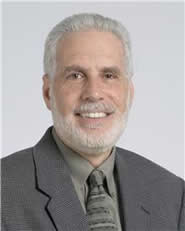
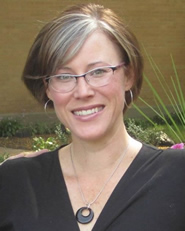
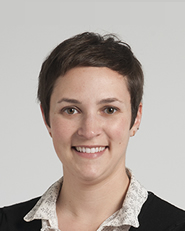
Bioethics—
where conceptual ethical analysis is melded with practical moral reasoning
Health Care Systems—
where critical understanding of the organization and delivery of healthcare in the United States is advanced, with a focus on issues of justice, healthcare reform, health economics and comparative health systems
Upstream—
where the foundations of the first two years of medical humanities work are applied in the clinical setting
Social Science & Arts—
where the contexts of health, well-being and healthcare are more fully explored
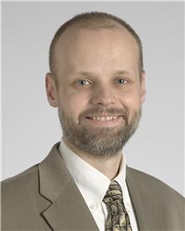
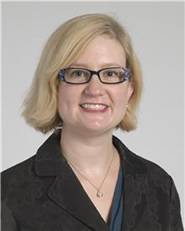
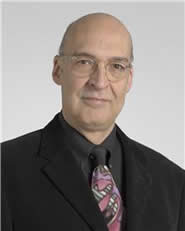
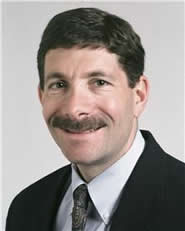
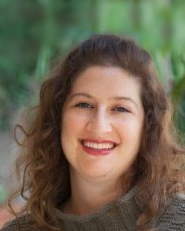
The generosity of local foundations and philanthropists helps us to broaden and enrich our humanities programming. The following are but some examples of the extraordinary vision our partners in philanthropy have toward our mutual goal of educating critically reflective caregivers.
Cleveland Foundation Three years of generous support have helped us create a vibrant Devising Healthy Communities initiative, pairing Year 1 medical students with Cleveland neighborhoods and artists.
Burt and Alice Lefkowitz The contributions of Alice and the late Bert Lefkowitz help support visits by scholars and artists working in the areas of professionalism and the medical humanities.
John P. Murphy Foundation The primary focus of support from the John P. Murphy Foundation is to help us create a blueprint for collaborative programming among CCLCM and other University Circle institutions, which will guide our development in anticipation of the opening of the Health Education campus in the next two to three years.
The vision involves joint programming and research, and coordination with regional, national and international efforts in healthcare humanities, social medicine and the arts. The grant also provides support for preliminary planning for the Medical Humanities and Arts Summit scheduled for spring 2016.
Bill and Ruth Neides Year 2 CCLCM students and local authors produced a “Stories of Health and Well-being” book, more than 1,000 copies of which were distributed to children and their families throughout Northeast Ohio thanks to the generosity of Bill and Ruth Neides.
Laura and Alvin Siegal The generosity of the Siegals helped support our earliest efforts in curricular innovation.
Please contact Amy Kubacki, Senior Director of Development, at 216.636.5024 or [email protected] for more information or to make a donation.
Bibendum accumsan, vestibulum ut, commodo a, mi. Morbi ornare gravida elit. Integer congue augue
Bibendum accumsan, vestibulum ut, commodo a, mi. Morbi ornare gravida elit. Integer congue augue
Bibendum accumsan, vestibulum ut, commodo a, mi. Morbi ornare gravida elit. Integer congue augue
Bibendum accumsan, vestibulum ut, commodo a, mi. Morbi ornare gravida elit. Integer congue augue
Vestibulum ligula augue, bibendum accumsan, vestibulum ut, commodo a, mi. Morbi ornare gravida elit. Integer congue, at cursus magna nisl nec elit. Donec iaculis diam a nisi accumsan viverra.
Visit SiteClient: Ecosystem
Aonsectetuer adipiscing elit dolore magna aliquam erat volutpat. consectetuer adipiscing sed diam nonummy nibh.
Visit SiteAonsectetuer adipiscing elit dolore magna aliquam erat volutpat. consectetuer adipiscing sed diam nonummy nibh.
Visit SiteAonsectetuer adipiscing elit dolore magna aliquam erat volutpat. consectetuer adipiscing sed diam nonummy nibh.
Visit SiteOur curriculum is the cornerstone of our efforts to help students apply the arts, social sciences, and humanities to their understanding and practice of health care within intrapersonal, interpersonal, and societal spheres.
Year 1 Course Curriculum
Students meet weekly in small and large group formats to discuss the meaning and claims upon oneself of being a doctor, exploring it as a profession that extends beyond technical skills and into membership of a moral community of broader obligations and thereby more complex responsibilities.
Text material is grounded in literature, bioethics and health systems. Practitioners and scholars whose work focuses on those areas join our discussions. Reflective writing exercises augment our work together. Students participate in a longitudinal arts-based qualitative investigation in the community (Devising Healthy Communities), which culminates at the end of the year in a presentation open to the community.
Year 2 Course Curriculum
Students meet weekly in small and large group formats to further explore U.S. and international healthcare systems. In addition, medical humanities sessions complement study of the organ system blocks, leading to an understanding of the inter-relations among patients, physicians and systems; to recognition of the reciprocal relationship between medicine and narrative; and to developing an appreciation of the role the humanities and social sciences play in clinical medicine, public health and health policy. Students also participate in reflective writing exercises and health care system essays.
During winter 2013-14, a group of CCLCM students participated in a writing workshop with sight-impaired clients at the Cleveland Sight Center. Called Body Talk: A Conversation About Health and Well Being, the workshop involved writing poetry about health and well-being from unusual, unexpected perspectives. The workshop participants wrote letters and postcards to their body parts, then tried to imagine the perspectives of those body parts as they wrote responses.
An overarching goal of Body Talk was to relate in a more sympathetic way to our bodies and to listen more carefully to what they might be telling us.
Braille copies of the finished product were provided by the Cleveland Sight Center. This program was funded in part by the Cleveland Foundation.From an essay describing the unruly toenails of an old, arthritic man to a witty poem about medication side effects, the Lerner College’s Celebration of Humanism in Medicine delved into the many ways healthcare professionals care for patients.
The program featured Jon Hallberg, MD, creator and host of the Hippocrates Café at the University of Minnesota Medical School. The Hippocrates Café is a live, hour-long show that enlists professional actors and musicians to explore, through story and song, various topics in healthcare — the perfect “act” for this inaugural event.
Using song, prose and poetry, the message to students is that it’s a privilege to know patients as people, and not to know them only as a disease or an illness, says Martin Kohn, PhD, Director of the CCLCM Medical Humanities Program.
Named the Alice & Bert Lefkowich Celebration of Humanism in Medicine, the program was made possible by a generous gift from Alice and the late Burt Lefkowich.
To help strengthen the connection between Lerner College medical students and the Cleveland arts community, the college invites local artists to engage with our students and faculty by sharing their stories, perspectives and inspiration.
Each year, in collaboration with the Cleveland Clinic Arts & Medicine Institute and the Cleveland Arts Prize, CCLCM holds an annual lecture featuring the winner of the Cleveland Arts Prize, an award given to a creative artist in Northeast Ohio. Not only does this annual event promote awareness of artistic expression in Northeast Ohio, but it also encourages our medical students to pursue creativity in their personal life, medical education and future career as empathic caregivers.First- and second-graders at Mary M. Bethune Elementary School in Cleveland voiced positive, healthy choices when they created a rap song called “When We Grow Up.”
Facilitators Katherine Burke, Katie Daley and Angelica Pozo, along with four CCLCM students worked with Dee Jay Doc (aka Doc Harrill) to discover what the children want to be when they grow up and to help create the song.
When it comes to health, your ZIP code may matter more than your genetic code. Why? Because some populations face serious issues such as poverty, food insecurity, educational barriers, homelessness and violence based solely on where they live, and their clinical problems sometimes have roots in environmental or socioeconomic circumstances.
By spending time with diverse populations, our medical students have the chance to discover the unique health and well-being issues that result from where these populations live, work and play.
First-year med students Joe Abraham and Jason Ya worked on art projects with members of the Merrick House Youth Council. During the academic year, they and other first-year students will visit Merrick House several times to engage in focused interactions with other young adults.
Merrick House is one of Cleveland’s original settlement houses that provides child care, youth services and adult education to the surrounding communities.In 2011 and in collaboration with Kent State University’s Wick Poetry Center, Lerner College students participated in the Healing Stanzas project. Students wrote poetry designed to explore the connection between art and medicine. Designers from Glyphix, Kent State’s student-run design studio, provided visual artistic talent, turning the poems into greeting cards and posters that were displayed inside Northeast Ohio area buses and transit systems.
View Kent State’s Traveling Stanzas project website to see -- and share -- illustrated poems and videos in multiple languages.”
In 2011, under the leadership of Bryan Sisk, MD (’13), the Lerner College of Medicine medical humanities journal Stethos was launched. This student-run journal, which is published annually, includes works of prose, poetry, photography and artwork.
Although Stethos technically doesn’t fall under the oversight of the Medical Humanities program, the journal demonstrates the students’ understanding and expression of medical humanities principles such as empathy, respect, self-awareness and reflective practice.
The students also have fun writing for and working on the publication. Stethos is also open to Lerner College faculty and alumni, and Cleveland Clinic nurses, residents and fellows.
View the current issue of Stethos.
“Vulnerability” was the writing prompt for the verbatim theatre production shown in the video. First-year students were asked to reflect on their work within the community and with local artists, and to write about a moment when they felt vulnerable — or a moment when they witnessed vulnerability.
The writing was then de-identified, synthesized and mined for content that worked theatrically. Finally, a script was developed and performed for the students by local artists, with the goal of giving the students a meta-reflective experience: They not only hear their own reflections about a certain topic, but they also hear the reflections of their peers, which helps to deepen their understanding, empathy and self-awareness.
Verbatim theatre is conducted two or three times a year and helps fulfill the reflective writing competency for first-year students at CCLCM.